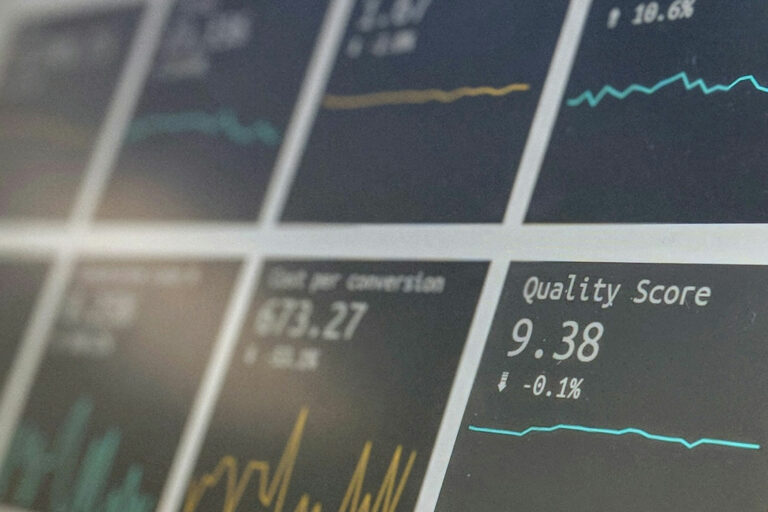Business-to-business (B2B) research may be less visible than its consumer-facing counterpart, but it plays a critical role in shaping high-value decisions across industries.
From informing product development and pricing strategy to assessing brand positioning and customer satisfaction, B2B research is essential for companies that sell to other businesses.
However, B2B research is fundamentally different from B2C research—and treating it the same way often leads to flawed conclusions. Understanding its unique dynamics is key to designing effective, actionable studies.
What Makes B2B Research Different?
Several characteristics set B2B research apart:
- Smaller, harder-to-reach audiences: In many sectors, the total addressable market is limited, and potential respondents are highly specialised or senior-level professionals.
- Complex decision-making units (DMUs): Purchasing decisions are often made by committees or influenced by multiple stakeholders, including procurement, finance, IT, and end users.
- Longer buying cycles: B2B decisions can take months or even years and are rarely impulsive.
- High-value purchases: The stakes are often high, involving long-term contracts or mission-critical systems.
- Specialist language and knowledge: Effective B2B research must reflect the terminology and context of the respondent’s industry.
As a result, B2B research demands more customisation, more nuanced questioning, and greater expertise in recruitment and analysis.
Challenges in Recruitment
Finding and engaging B2B respondents is one of the biggest challenges. These individuals are often time-poor, protective of their information, and not part of traditional consumer panels. Many senior professionals are also inundated with requests and may be wary of generic surveys.
To succeed, researchers must:
- Use targeted, professional recruitment channels (e.g. LinkedIn, industry lists, trade associations).
- Clearly communicate value – what’s in it for the respondent?
- Offer appropriate incentives that respect the respondent’s time and status.
- Demonstrate credibility, often via personalised outreach and clear research objectives.
Screening is also crucial to ensure the right people are involved. Misclassification can be costly in B2B research, where each interview or survey represents a significant investment.
Designing the Right Methodology
Given the smaller sample sizes in B2B, qualitative research often plays a central role. In-depth interviews (IDIs) allow for deep exploration of needs, processes, and perceptions. Focus groups may be used, but must be carefully moderated given professional sensitivities and potential competitive dynamics.
Quantitative studies, when feasible, must be meticulously designed. This includes:
- Avoiding jargon unless it matches the audience’s language.
- Allowing for complex response options (e.g. matrix questions, conditional logic).
- Tailoring analysis techniques to suit smaller sample sizes, often focusing on trends and segmentation rather than statistical significance.
Customer journey mapping, stakeholder audits, and conjoint analysis are popular tools in B2B settings, helping to unpack complex decision processes and value drivers.
Understanding the DMU
One of the most important aspects of B2B research is recognising that decisions are rarely made by a single individual. It is essential to map the decision-making unit (DMU) and include voices from across it.
For example, in buying enterprise software, the process may involve:
- A user team that identifies the need
- An IT department that evaluates compatibility
- A finance team that considers cost
- A C-level executive who approves the purchase
Research should be designed to capture all of these perspectives to understand the full context of decision-making.
Building Long-Term Insight Programs
B2B relationships are ongoing and complex. Rather than one-off studies, many companies benefit from ongoing insight programs. These may include:
- Customer satisfaction tracking (e.g. Net Promoter Score)
- Win/loss analysis to understand why deals are won or lost
- Brand health tracking within industry niches
- Thought leadership research to support content marketing and reputation
The goal is to build a continuous dialogue with customers and prospects, supporting long-term strategic planning.
Ethical Considerations
Privacy and confidentiality are especially important in B2B research. Many participants are sharing commercially sensitive information or opinions tied to their professional reputation. Researchers must:
- Guarantee anonymity where needed
- Be transparent about who is commissioning the research
- Avoid leading questions or sales-like framing
- Handle data securely and responsibly
Why B2B Insight matters more than ever
As industries digitise, consolidate, and face supply chain and regulatory pressures, the need for robust B2B insight is growing. Understanding clients, competitors, and markets is critical for innovation, growth, and resilience.
At the same time, expectations have changed. B2B buyers now expect the same level of personalisation, speed, and responsiveness they receive in B2C interactions. Research must help businesses rise to meet those expectations.
Why 2Europe is your B2B Research Partner
At 2Europe, we understand that B2B research is not just about collecting data—it’s about understanding context, uncovering drivers, and supporting strategic decisions. Our team has decades of experience in complex, high-value B2B sectors including healthcare, technology, manufacturing, and financial services.
We tailor our approach to your market, audience, and goals—whether you need to explore new opportunities, test messaging, understand purchasing behaviour, or evaluate customer experience.
From recruitment to analysis, we ensure every step of your B2B research is grounded in rigour, relevance, and respect.
Let’s talk about your audience and how 2Europe can help you understand and engage them better than ever.








